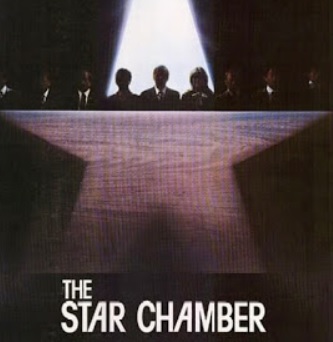
![]() From Editor Betsy Combier:
From Editor Betsy Combier:
When I started my voluntary study of the compulsory arbitration known as “3020-a” in 2003, I believed right from the start and still do believe, that the procedures used to prosecute the charges violate the accused person’s Due Process rights to a fair and complete hearing. This egregious action is compounded by the biases and lies of the lawyers and their witnesses brought to testify or promote false “evidence” under the color of law. 3020-a arbitrators, one in each case, sit in judgment of a tenured employee of the NYC DOE and can exonerate, fine, suspend from employment without pay or terminate any charged person brought before them. The United Federation of Teachers, their legal adjunct agency NYSUT, and the New York City Department of Education run these hearings in such a way as to deny the charged employee their rights under New York State law.
I have reviewed countless cases of arbitrator abuse and worked as a paralegal to overturn some of the worst. See the cases of Lisa Broad, where I assisted Attorney Candace Deamer, (see here for blog post) and David Suker, where I assisted Attorney Maria Chickedantz (see here). These are two of the 35 cases I have assisted in, in which New York State Supreme Court judges have overturned the decision of the arbitrator based on the 3020-a decision being “excessive” or “shocking to the conscience”.
The trouble with all of this is that the NYC 3020-a labor arbitration process, content, and decisions are random, and if you do not have enough experience with the way NYC permanent panel arbitrators work, and you fail to recognize an “untruth” (is that diplomatic enough?), the lie goes into the permanent record.
Every hearing is unique. I have reviewed hundreds of decisions of arbitrators and, before 1994, the Commissioner of New York State Department of Education. I find the randomness fascinating. How did one arbitrator find that a teacher was guilty of slamming a child against a wall to remove them from a fight in the classroom and give a $7500 fine, while another gets terminated for the same act or less?
The fines, suspensions, and terminations are not uniform or set to any standard. This is unlawful, because tenure in New York State is protected, public policy. There is a high standard for termination, and the arbitrators write their decisions often to get away with doublespeak on how egregious the charges were, to try to reach a justification for termination that they were told by a DOE person before the hearing began that they had to find. If nothing else works, the arbitrator can find the accused “not credible”, and his/her case is thrown out.
Oh yes, folks, the permanent panel in New York City lends itself to all kinds of legal abuse. In other parts of New York State, when a tenured school employee is charged, these charges immediately go to a vote in an Executive Session of the school board on probable cause. As tenure is a property and liberty right in New York State, the Fourteenth Amendment covers any unlawful seizure (I am not a lawyer, this is my opinion):
“C. Seizure of Property
A seizure of property, within the meaning of the Fourth Amendment, occurs when there is some meaningful interference with an individual’s possessory interests in the property.”
Thus any arbitrator who agrees to take a case handed to them, randomly – not – by the NYC DOE and the UFT, knows that they must meet a Constitutional Standard in their decision for/against the penalty in each case.
Many arbitrators don’t care that the Department wants them to rule in their favor, even if the case they present is without basis, and do what is fair. One of my favorite arbitrators of recent years is Eugene Ginsberg. I believe that he was the most thorough, fair arbitrator on the panel. He was fired in September 2016.
He told me that if that was because of his decisions, so be it. See his decision in the case of Ann Legra.
As I wrote above, some arbitrators have a problem being fair, and go along to get along with the Department of Education in order to stay on the permanent panel. When you are in a hearing, you can spot these arbitrators a mile away. I will write about them in a later post.
New York State Supreme Court Judge Lucy Billings has a problem with the randomness of the new York City 3020-a arbitrators’ randomness in their penalties, as she wrote in the case of Moreno-Lieberman, which I use in all my closing arguments:
“IV.THE INVITATION TO ARBITRARY ASSESSMENT OF PENALTIES
In fact, the absence of any specific guidelines for the imposition of fines in teachers’ disciplinary proceedings shocks the conscience and is a deficiency to be addressed by respondents or a legislative body. While respondents and their designated Hearing Officers unquestionably are authorized to impose fines on teachers for disciplinary offenses, the decision-makers must do so fairly, not arbitrarily. General Elec. Capital Corp. v. New York State Div. of Tax Appeals, Tax Appeals Trib., 2 NY3d 249, 254 (2004); Abraham & Strauss v. Tully, 47 NY2d 207, 213-14 (1979); 164th Bronx Parking, LLC v. City of New York, 20 Misc 3d 796, 804 (Sup. Ct. Bronx Co. 2008). Neither the Education Law, nor the Chancellor’s Regulations, nor any other code fixes any “primary standard” or articulates any objective test or gauge, General Elec. Capital Corp. v. New York State Div. of Tax Appeals, Tax Appeals Trib., 2 NY3d at 254; Nicholas v. Kahn, 47 NY2d 24, 31 (1979); 164th Bronx Parking, LLC v. City of New York, 20 Misc 3d at 805, to guide respondents’ or Hearing Officers’ exercise of authority and discretion in their assessment of monetary penalties. Big Apple Food Vendors’ Assn. v. Street Vendor Review Panel, 90 NY2d 402, 407-408 (1997); Nicholas v. Kahn, 47 NY2d at 28, 33-34; 164th Bronx Parking, LLC v. City of New York, 20 Misc 3d at 805. See Big Apple Food Vendors’ Assn. v. Street Vendor Review Panel, 90 NY2d at 405-406. Their assessment of penalties that they are charged to administer may be upheld if the assessment is rational and not excessive, e.g., Goodwin v. Perales, 88 NY2d 383, 392 (1996), yet no statute or interpretive regulation articulates a standard or gradation against which to measure the rationality or excessiveness of a monetary penalty. Nicholas v. Kahn, 47 NY2d at 33-34; Levine v. Whalen, 39 NY2d 510, 518-19 (1976); 164th Bronx Parking, LLC v. City of New York, 20 Misc 3d at 805-806.
In sum, the absence of any statute or implementing regulation to guide the evaluation of fines to be imposed allows unfettered, standardless, arbitrary administrative decision-making. 164th Bronx Parking, LLC v. City of New York, 20 Misc 3d at 806. By delegating unbounded latitude to respondents and Hearing Officers in these administrative actions, the statutory and regulatory scheme leaves their decisions subject to untrammeled discretion. Big Apple Food Vendors’ Assn. v. Street Vendor Review Panel, 90 NY2d at 408; Nicholas v. Kahn, 47 NY2d at 28, 33-34; 164th Bronx Parking, LLC v. City of New York, 20 Misc 3d at 806; Dawson v. Village of Spring Val., 151 Misc 2d 128, 134 (Sup. Ct. Rockland Co. 1991). See C.P.L.R. § 7803(3).”
So what is a teacher supposed to do who is charged with 3020-a? Fight. Don’t settle, resign or disappear. The charges will follow you for the rest of your career. But be wary of anyone who belittles you, your charges, or does not have experience in NYC 3020-a. NYC is a minefield with bizarre statements made on a consistent basis, which must be addressed on the spot, at the hearing. The DOE wants their witnesses to lie if that is what it takes to terminate a charged employee. Catch the lie, have your representative squeeze out the truth in cross-examination.
In my opinion, there are NYSUT attorneys who know what to do, but don’t do work on any case if at all possible; some NYSUT attorneys do a minimum amount of work but are reluctant and must be pushed, and then there are NYSUT attorneys who seem to work diligently, but nonetheless will not get all your requests (medical, witnesses, exculpatory evidence) into the record, which in my mind is absolutely required if you are to win at the 3020-a or in appeal.
The process in NYC starts out on the wrong foot when, in the charging papers, the Notice of Determination of Probable Cause Pursuant to Education Law 3020-a, has no date for the Executive Session of the school board (in NYC the Panel For Educational Policy) required by Education Law 3020-a(2)(a). The reason is that the NYC Department of Education never allows or schedules an executive session for the NYC school board because they don’t want it.
Really, and they get away with this in NYC because they want it that way.
Just “because” you don’t want to do something does not mean that you can allow a law to be ignored, but that is exactly what the NYC DOE does, and has done. In every case that I work on, we – the Attorney and I – submit a Motion To Dismiss the charges based on this procedural error. The arbitrator always dismisses this motion. But we use this in an appeal to the Supreme Court, and as I wrote above, we have overturned 35 decisions of arbitrators to date.
We have no secret on winning 3020-a. In every case, the standard is to be respectful to the arbitrator but not to accept any Department nonsense without vigorously objecting, pointing out lies, submitting documentation about violations of law and UFT rules (there are always many in every case – B), and submit a dynamite closing argument that shows the arbitrator that the legal team – the Respondent, Attorney, paralegal – mean business, and will take any penalty seriously (and appeal, get media coverage of the arbitrator, etc.).
One more thing. I believe that the minute anyone is charged with 3020-a or any charges by the Department of Education that this person must immediately file a Notice of Claim. This Notice is sent to the NYC Comptroller’s Office and the New York City Law Department, and opens the door to a right to sue the NYC DOE and other agencies for a year and 90 days from the event which harmed you. Do it. See the case of Garcia v Yonkers School District. The Plaintiff did not file a Notice of Claim, and the judge dismissed her State actions because of that.
In sum, what I’m saying is that NYC 3020-a is a random and arbitrary mess, but it is entirely possible to clear the name of a charged employee , or avoid termination, in the decision of the arbitrator. The charged employee’s legal team MUST work together, sharing the transcripts as the hearing moves forward, and constantly working through the lies and violations of law and contract presented by the DOE. Then you win.
Betsy Combier
President and Founder, ADVOCATZ
betsy.combier@gmail.com
Editor, NYC Rubber Room Reporter
Editor, Parentadvocates.org
Editor, New York Court Corruption
Editor, National Public Voice
Editor, NYC Public Voice
Editor, Inside 3020-a Teacher Trials
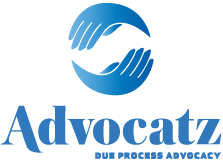
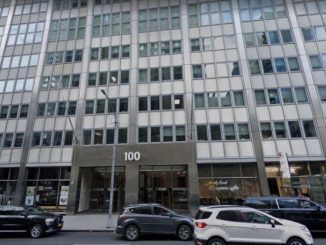
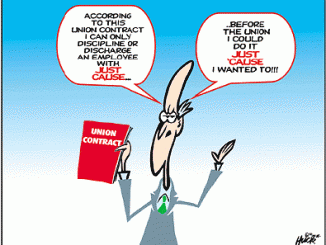
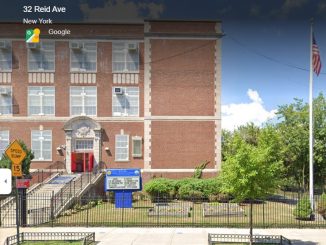
Be the first to comment